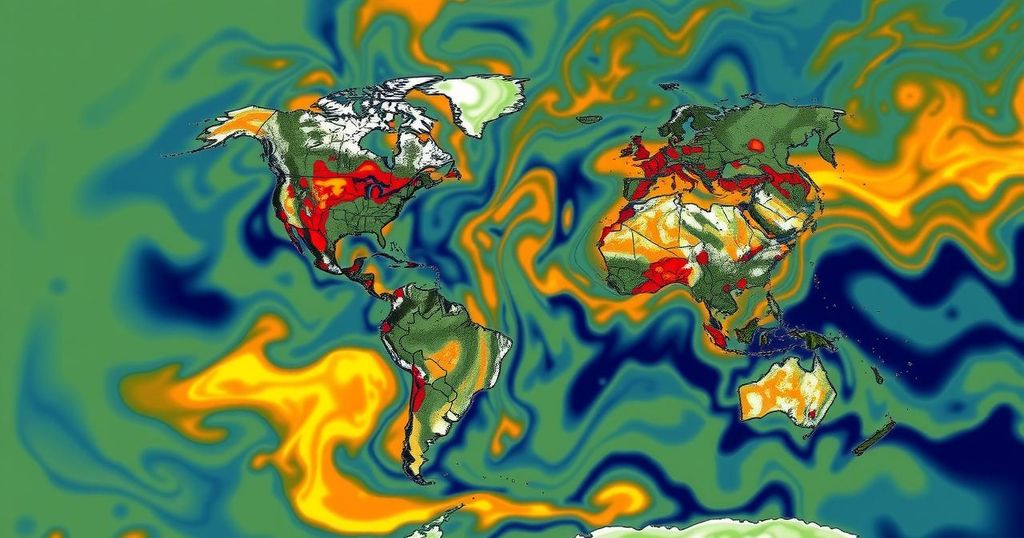Week in Review: Key Climate Developments from October 21-25, 2024
This week’s climate update reveals critical issues including 80% of nations missing the biodiversity plan deadline ahead of COP16, UN warnings of a potential 3.1C temperature rise due to insufficient emissions cuts, the devastation caused by Typhoon Trami in the Philippines, and an unprecedented global coral bleaching event impacting 77% of coral reefs.
This week’s climate news highlights significant developments in global biodiversity commitments, alarming trends in temperature rise, and increasing occurrences of extreme weather events, underscoring the urgency for immediate action against climate change and biodiversity loss. The recent report from the United Nations emphasizes that over 80% of nations have failed to submit essential biodiversity plans ahead of COP16, signifying a major setback in global conservation efforts. In a stark warning, scientists indicate that current emissions pathways are leading towards a 3.1C increase in global temperatures unless drastic emission reductions of up to 57% are implemented. The UN Secretary-General urged delegates to take concrete steps following the alarming state of global biodiversity which is rapidly declining. Furthermore, Typhoon Trami has caused significant devastation in the Philippines, resulting in fatalities and mass evacuations. Finally, NOAA reported that the ongoing global coral bleaching event is now the largest on record, highlighting a serious environmental crisis as coral reefs face unprecedented stress.
The necessity for proactive measures to combat climate change and protect biodiversity is increasingly urgent. Global biodiversity is faltering, with only 32 of the 193 Parties to the Convention on Biological Diversity having submitted their National Biodiversity Strategy and Action Plans (NBSAPs) prior to COP16. This reflects a concerning lack of commitment from member states to adhere to the Kunming-Montreal Global Biodiversity Framework (GBF) adopted at COP15. Concurrently, the Intergovernmental Panel on Climate Change has reiterated that without ambitious action to reduce greenhouse gas emissions, the world risks catastrophic temperature increases. Notably, extreme weather events, such as Typhoon Trami, exemplify the human and economic toll of climate change, while unprecedented coral bleaching threatens marine ecosystems and biodiversity.
In summary, the week has revealed critical setbacks in global environmental commitments with substantial implications for biodiversity and climate stability. With the COP16 conference commencing amidst these troubling findings, it is imperative that nations prioritize the development and implementation of robust action plans to mitigate climate impacts. The urgency is exacerbated by ongoing extreme weather phenomena and ecological crises that threaten the very fabric of planet Earth’s biodiversity.
Original Source: earth.org




Post Comment